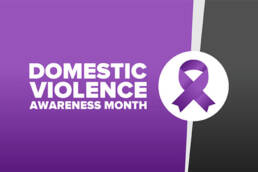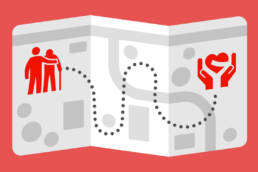Sleep deprivation can be defined on several levels and the worst is insomnia. Insomnia is one of the most common health concerns among adults. Insomnia causes sleep issues that interfere with daily life and can be debilitating for some people. It is a sleep disorder characterized by difficulty falling asleep, staying asleep, or both, even if you have ample time and a bedroom environment conducive to restful sleep. If it is serious enough, insomnia diagnosis can occur and it requires sleep troubles that cause daytime impairments, such as sleepiness or difficulty concentrating.
Up to two-thirds of people occasionally experience insomnia symptoms. These bouts of sleeplessness may or may not meet the criteria for a formal diagnosis of insomnia, depending on how long they last and whether they cause distress or interfere with daily functioning. But it is important for anyone who has concerns about their sleep to pay attention to their functioning and if it is a personal issue to discuss it with their health professional for proper diagnosis and treatment.
Many factors may contribute to insomnia, including stress, medications, and an individual’s sleep habits and environment. Not getting enough sleep or insomnia drains your mental abilities and puts your physical health at risk. Science has linked inadequate sleep with a number of health problems, from weight gain to a weakened immune system. If you’ve ever spent a night tossing and turning, you already know how you’ll feel the next day — tired, cranky, and out of sorts. But missing out on the recommended 7 to 9 hours of sleep nightly does more than make you feel groggy and grumpy.
Insomnia is a sleep disorder characterized by difficulty falling asleep, staying asleep, or both. It can be short-term (acute) or can last a long time (chronic). An insomnia diagnosis requires these sleep troubles to also cause daytime impairments, such as sleepiness or difficulty concentrating. Insomnia is also known as sleeplessness. It is a condition of being unable to sleep over a period of time. Insomnia is when you experience disruptions in how you feel or function because you aren’t sleeping well or sleeping enough. About 10% of the world’s population experience insomnia that qualifies as a medical condition. It’s usually not dangerous, and there are many ways including medications and mental health options to treat it.
For some people, insomnia is a minor inconvenience. For others, insomnia can be a major disruption. The reasons why insomnia happens can vary just as widely. Your body needs sleep for many reasons and science is still unlocking an understanding of why sleep is so important to your body. Experts do know that when you don’t sleep enough, it can cause sleep deprivation, which is usually unpleasant (at the very least) and keeps you from functioning at your best.
The long-term effects of sleep deprivation are real. A chronic lack of sleep can have a negative effect on your heart health and metabolism. Research has shown that long-term insomnia may be associated with a higher chance of obesity, type 2 diabetes, hypertension, and some cancers. In addition, lack of sleep may lead to cognitive challenges such as thought processes related to learning, remembering, planning, and interpreting information. Without sleep, our cognitive and emotional abilities become markedly disrupted. Persistent sleep deprivation can lead to memory and learning challenges, emotional distress, increased production of stress hormones, irritability and other mood changes, decreased productivity, difficulty with focus and concentration, worsening of existing symptoms of mental or physical health, and increased blood pressure. These are not minor!
What do we do? The best treatment to sleep deprivation is to get an adequate amount of sleep, typically 7 to 9 hours a night. This is often easier said than done, especially if you’ve been deprived of precious sleep for several weeks or longer. After this point, you may need help from your doctor or a sleep specialist who, if needed, can diagnose and treat a possible sleep disorder. Sleep disorders may make it difficult to get quality sleep at night. They may also increase your risk for the above effects of sleep deprivation on the body.
The following are some of the most common types of sleep disorders: Obstructive sleep apnea, narcolepsy, restless leg syndrome, or insomnia. To diagnose these conditions, your doctor may order a sleep study. This is traditionally conducted at a formal sleep center, but now there are options to measure your sleep quality at home, too. One option that I have is an apple watch.
If you’re diagnosed with a sleep disorder, you may be given medication or a device to keep your airway open at night (in the case of obstructive sleep apnea) to help combat the disorder so you can get a better night’s sleep on a regular basis.
In the long term, a chronic lack of sleep can have a negative effect on your heart health and metabolism. In addition, lack of sleep may lead to cognitive issues as previous stated. Clearly this impact on your learning, remembering, planning, and interpreting information can have a tremendous effect on your life. Therefore, sleeping 7 to 9 hours per day “adds life to years”.Top of Form
Lawrence J. Weiss, Ph.D. is CEO of the Center for Healthy Aging. Dr. Weiss welcomes your comments on this column. Write to him at [email protected] or c/o Center for Healthy Aging, 11 Fillmore Way, Reno, NV 89519.




















































































































